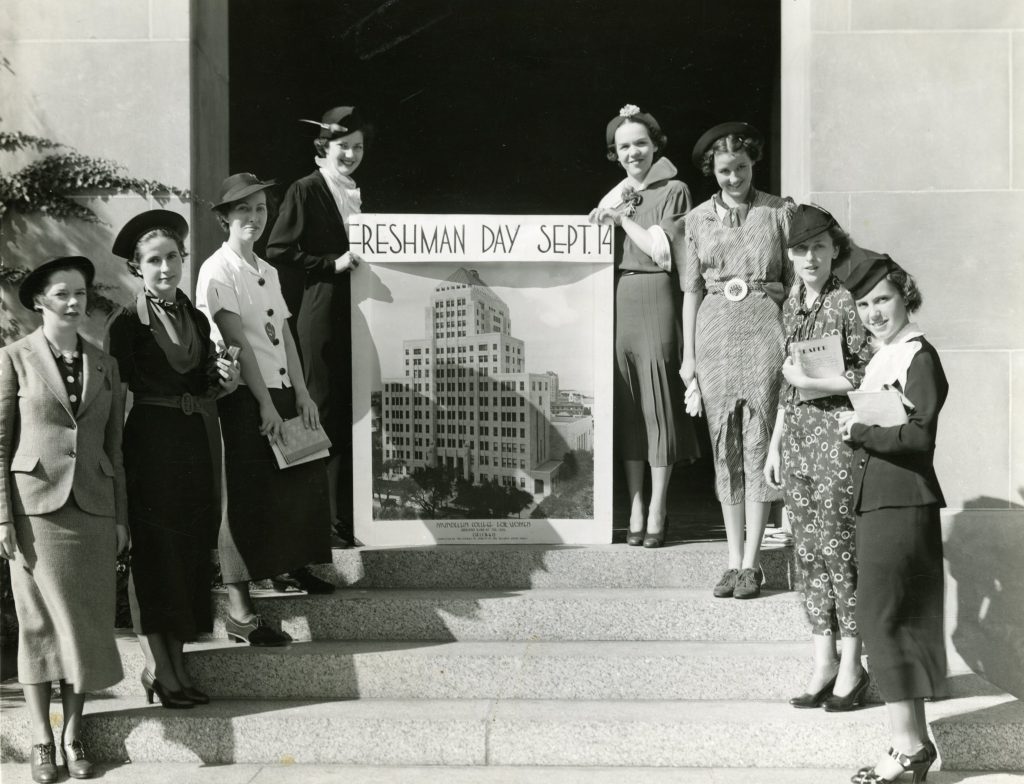There was something not quite right about the working title for this folder. The first letters of the student organization’s full name, “Latins United for Our Cultural Heritage”, were not lining up with its acronym, LUCIR. This thought continued to bug me as I scanned the folder of pictures, leading me to pursue a fascinating trail through a published book, several other folders in the Women and Leadership Archives’ (WLA) collection and a yearbook.
Tag Archives: Mundelein College
Christmas Jewels: A Taste of the Holidays at Mundelein College
It’s almost holiday time at Loyola, which means finals week, cold winds off the lake, and dreaming of holiday food! For someone who loves food and history, I am always looking for ways to use food to better understand the past. So when I learned that the WLA holds papers from Mundelein College’s* Home Economics department, I had a feeling there might be some gems hiding in the files.
A Visit Turned Crusade: A Struggle to End the Death Penalty
Dr. Irene Meyer was a Mundelein College* professor from 1957 to 1992. In that time, Dr. Meyer earned her PhD, became a fervent civil rights activist, and fought for the abolition of capital punishment in Illinois. I first came across Dr. Irene Meyer earlier this year for a reference request. In her file, there were several articles, which marked her involvement with a man on death row. Reading these sparked my curiosity, and I had to see what else we had in our collections on Dr. Meyer. What I learned was that Dr. Meyer has led an amazing life, built an incredible career, and her story is one that needs to be told. Continue reading
Dancing at Mundelein
Dance has a large impact on my life. I grew up dancing, starting at the age of three. I went through my life, even graduating with a Dance Complementary major. When I stumbled onto dance records working at the Women and Leadership Archives, I became very excited.
I began research on dance at Mundelein College*, combing through files and student newspapers. I came across several photos of co-ed dances as well as finding some photos and articles of Mundelein dance performances. Overall, I noticed three main genres of dances at Mundelein: company dance performances, students in dance, and social dances.
Start of a New School Year
This blog was originally posted on September 9, 2016. As we welcome new students and share in old traditions, we hope you enjoy reading about the new school year activities at Mundelein College!
Universities around the country are now in full swing. Returning students fall into a familiar routine while incoming freshman spend their first days figuring out class schedules and getting the lay of the land. Articles and photographs in the Skyscraper give some idea as to how Mundelein College* students rang in the new school year. Freshman and upperclassmen alike participated in socials, dances, and a Big Sister program.
Much information about the new students can be found in the Skyscraper. Yearly, the front page of the newspaper featured a photo of the “First Ladies.” The women featured in the photos were students from the incoming freshman class that were the top students in their high school class. The newspaper recognizes all incoming students with articles containing demographics and statistics of the incoming freshman class. These include what schools, states, and countries the students came from as well as if there was an increase in enrollment. Staff and faculty are also recognized, including one article highlighting that the new faculty studies in seven countries. Continue reading
Graduation Reflections: Mundelein Commencement Through the Years
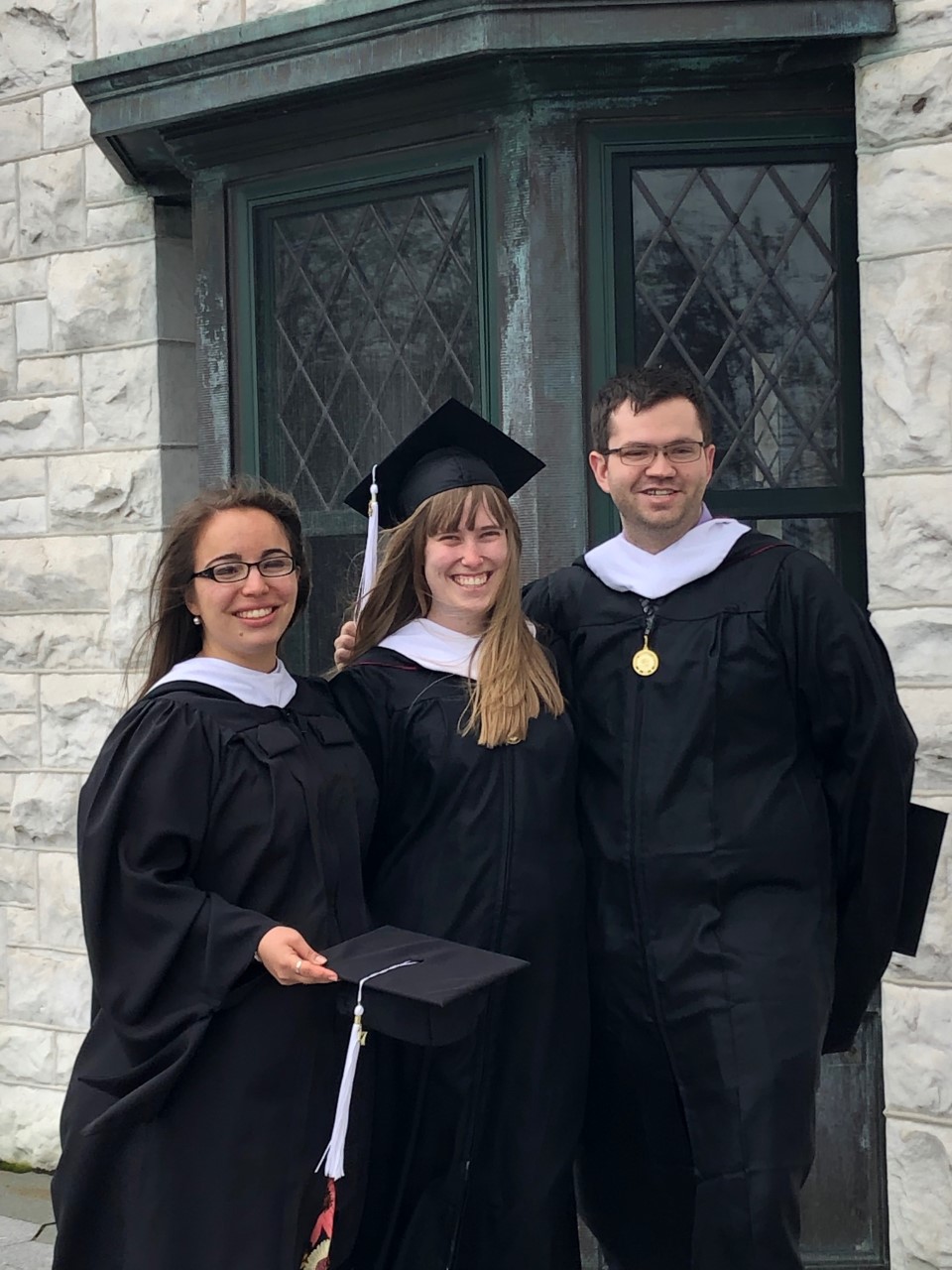
WLA graduate assistants and Master’s in Public History Angela and Emily, pose with fellow graduate Matt before their Commencement ceremony on May 7, 2019. Angela and Emily each earned a Master’s in Public History and Matt earned a Master’s in United States History.
It’s graduation time at Loyola University Chicago, and I’ve enjoyed looking back at commencement photographs from the collection of Mundelein College. Mundelein College, founded and operated by the Sisters of Charity of the Blessed Virgin Mary (BVM), provided education to women from 1930 until 1991 when it affiliated with Loyola University Chicago.
I helped reprocess the Mundelein College Paper Records and wrote the collection finding aid alongside Project Archivist Caroline. We arranged, described, and housed archival objects for patron use. The Women and Leadership Archives, in Piper Hall on Loyola’s Lake Shore Campus, holds the many, many boxes of processed materials from the Catholic women’s college. Today, Mundelein’s skyscraper building is known as the Mundelein Center for Fine and Performing Arts. The Women and Leadership Archives preserves the college’s memory through a variety of records.
Digitizing Mundelein
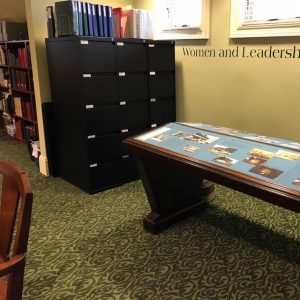
Our unassuming file cabinets
There is a lot of history stored here in the Women and Leadership Archives, so it would be easy to overlook the three black filing cabinets tucked away in a corner of our reading room. That would be a mistake, though, since those drawers contain the Mundelein College Photograph Collection.* In other words, they hold an estimated 40,000 photographs and slides (yes, you read that correctly) captured during Mundelein College’s more than sixty-year history.
From Barrington to ‘Nam: A Teacher’s Effort to Bring ‘Home’ to Her Student Soldiers
Archival collections offer a unique glimpse into someone’s life that we do not get from just a biography. Sometimes the seemingly random pieces or folders offer the most complete picture of a person or organization. Katherine DeLage Taft’s connection to the Vietnam War is an example of this that I personally love.
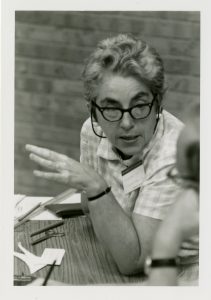
Katherine DeLage Taft, no date
Peace Studies Through the Years: Mundelein’s Legacy at Loyola
This post was written for Dr. Elizabeth Fraterrigo’s Fall 2018 Women’s and Gender History course. It is part of the Sesquicentennial Blog Project, which seeks to share stories from Loyola University and Mundelein College in anticipation of Loyola’s 150th anniversary in 2020-2021.
Compared to subjects offered since Loyola’s founding, Peace Studies is a relatively new program at Loyola University Chicago. Its history, however, stretches much further back than its start in 1994 as an interdisciplinary minor. The program’s roots can be traced to Loyola’s neighbor, Mundelein College, a women’s Catholic school that operated from 1930-1991 in what is now Mundelein Center. The story of the Peace Studies program’s journey from Mundelein to Loyola is a fascinating one, and it reveals the ways people at both schools thought about the meaning of peace.
Ora Benton: Student Smuggler to the Soviet Union
This past September I attended the Class of 1968 Reunion/Gannon Center 25th Anniversary to help work an oral history listening station. While I was there, I talked with a Mundelein graduate that went on a study abroad trip to the Soviet Union. She mentioned that some girls on the trip brought blue jeans with them to sell to Russians. I was interested in the idea that some women on the trip smuggled goods into the country, and decided to look into the 1982 Soviet Union study abroad trip in our archives. In the Alumnae series of the Mundelein College collection I found an account of the trip from 1980 Mundelein graduate, Ora Benton.
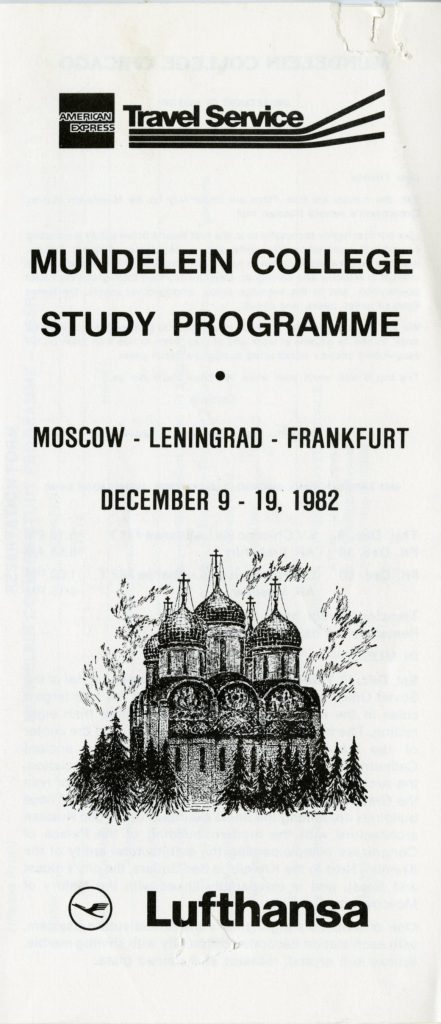 Ora was busy packing her bags for the trip. She had to fit everything she needed for the ten-day trip, but she was not worried about space; she was worried about getting through Soviet customs. Ora, and forty-three other students, alumnae, and friends of Mundelein College* were preparing for a study abroad trip to the Soviet Union in December of 1982. Shortly after Mundelein planned the trip the Chicago Action for Soviet Jewry (CASJ) contacted Ora and other participants of the study abroad trip. The organization asked the students to help them deliver gifts and religious material to “Refusenik” families in the Soviet Union.
Ora was busy packing her bags for the trip. She had to fit everything she needed for the ten-day trip, but she was not worried about space; she was worried about getting through Soviet customs. Ora, and forty-three other students, alumnae, and friends of Mundelein College* were preparing for a study abroad trip to the Soviet Union in December of 1982. Shortly after Mundelein planned the trip the Chicago Action for Soviet Jewry (CASJ) contacted Ora and other participants of the study abroad trip. The organization asked the students to help them deliver gifts and religious material to “Refusenik” families in the Soviet Union.
Refusenik families were Soviet-Jewish families that wanted to emigrate, but the USSR refused to grant them exit visas. The women were immediately hesitant to help the CASJ. Visiting the Soviet Union during the Cold War was already nerve-wracking and now the organization wanted them to smuggle in religious “contraband.” A representative with the Chicago Action for Soviet Jewry assured them the actions were neither illegal nor dangerous. Ora and her classmate ultimately conceded to visiting one family in Moscow and one in Leningrad. Gifts for the families included menorahs, bibles, Jewish reading material, clothes, and food. What the women did not know was the Soviet Union had strict laws prohibiting the distribution and teaching of religious material.
Arriving in the Frankfurt Airport, the bags made it through customs with only a small issue of metal casing on the bible setting of the detector. While the women were not particularly worried about security in Frankfurt, the metal detector scare on the bible increased anxiety about bag checks in the Soviet Union. After landing in Moscow, both Ora and her classmate made it through customs without any issues. The customs officials did not flag of confiscate any material in the suitcases.
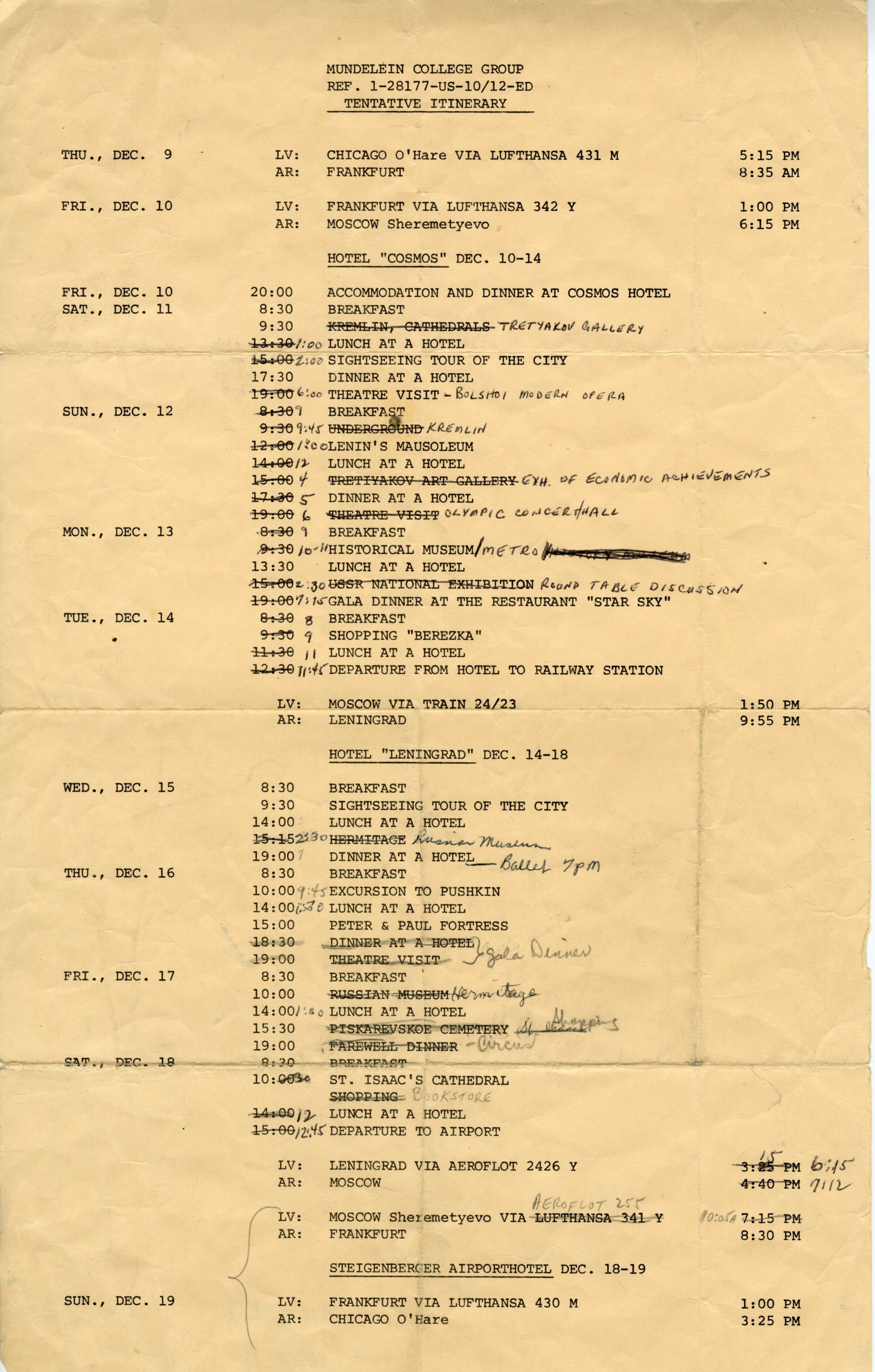
Once in the Soviet Union, tour guides kept the group busy with a packed itinerary. Despite their busy schedule, Ora and her classmate found time to make their way to the first Jewish household. Still uneasy and concerned about surveillance, the women were careful not to use their hotel phone or call a taxi to the hotel. Ora recalled finding a taxi after walking down a couple blocks from the hotel. At the first home, they met an American whose father brought him to the Soviet Union during the depression. He had settled in Moscow with and his wife and son. The family tried to immigrate to Israel, but the Soviet Union denied their request to leave.
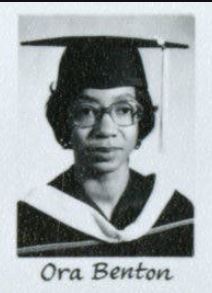 On the last day of the trip, the students made contact with the family in Leningrad. They only had one hour to visit before they had to catch their flight back to the United States. The Leningrad family, much like the family in Moscow, were very welcoming to the Americans. Their four-year-old daughter showed off her English skills, reciting children’s rhymes her father had taught her. After visiting for an hour and distributing the gifts, Ora and her classmate departed for the hotel to pack their things for the trip home. All the students and alumnae made it safely back to the United States despite smuggling contraband into the Soviet Union and breaking several Soviet laws.
On the last day of the trip, the students made contact with the family in Leningrad. They only had one hour to visit before they had to catch their flight back to the United States. The Leningrad family, much like the family in Moscow, were very welcoming to the Americans. Their four-year-old daughter showed off her English skills, reciting children’s rhymes her father had taught her. After visiting for an hour and distributing the gifts, Ora and her classmate departed for the hotel to pack their things for the trip home. All the students and alumnae made it safely back to the United States despite smuggling contraband into the Soviet Union and breaking several Soviet laws.
*Mundelein College, founded and operated by the Sisters of Charity of the Blessed Virgin Mary (BVM), provided education to women from 1930 until 1991, when it affiliated with Loyola University Chicago.
Molly is a Graduate Assistant at the WLA and is in the first year in the joint Public History/Library Information Science program with Loyola University Chicago and Dominican University. She enjoys running, reading by the lake, and cheering on the Cardinals despite being surrounded by Cubs fans.
Loyola University Chicago’s Women and Leadership Archives Blog is designed to provide a positive environment for the Loyola community to discuss important issues and ideas. Differences of opinion are encouraged. We invite comments in response to posts and ask that you write in a civil and respectful manner. All comments will be screened for tone and content and must include the first and last name of the author and a valid email address. The appearance of comments on the blog does not imply the University’s endorsement or acceptance of views expressed.

